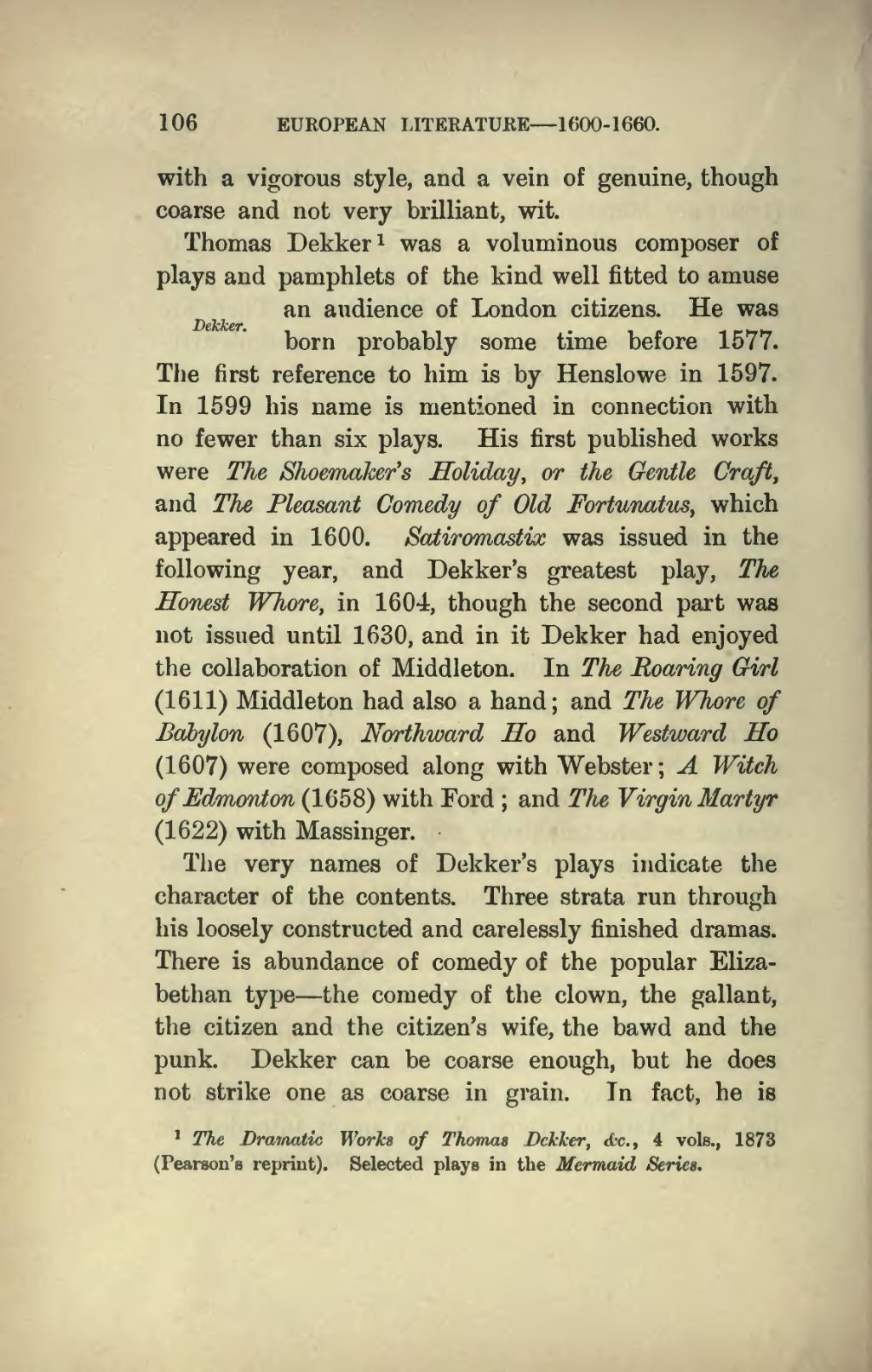with a vigorous style, and a vein of genuine, though coarse and not very brilliant, wit.
Thomas Dekker[1] was a voluminous composer of plays and pamphlets of the kind well fitted to amuse an audience of London citizens. He was born probably some time before 1577. The first reference to him is by Henslowe in 1597. In 1599 his name is mentioned in connection with no fewer than six plays. His first published works were The Shoemaker's Holiday, or the Gentle Craft, and The Pleasant Comedy of Old Fortunatus, which appeared in 1600. Satiromastix was issued in the following year, and Dekker's greatest play, The Honest Whore, in 1604, though the second part was not issued until 1630, and in it Dekker had enjoyed the collaboration of Middleton. In The Roaring Girl (1611) Middleton had also a hand; and The Whore of Babylon (1607), Northward Ho and Westward Ho (1607) were composed along with Webster; A Witch of Edmonton (1658) with Ford; and The Virgin Martyr (1622) with Massinger.
The very names of Dekker's plays indicate the character of the contents. Three strata run through his loosely constructed and carelessly finished dramas. There is abundance of comedy of the popular Elizabethan type—the comedy of the clown, the gallant, the citizen and the citizen's wife, the bawd and the punk. Dekker can be coarse enough, but he does not strike one as coarse in grain. In fact, he is
- ↑ The Dramatic Works of Thomas Dekker, &c., 4 vols., 1873 (Pearson's reprint). Selected plays in the Mermaid Series.
